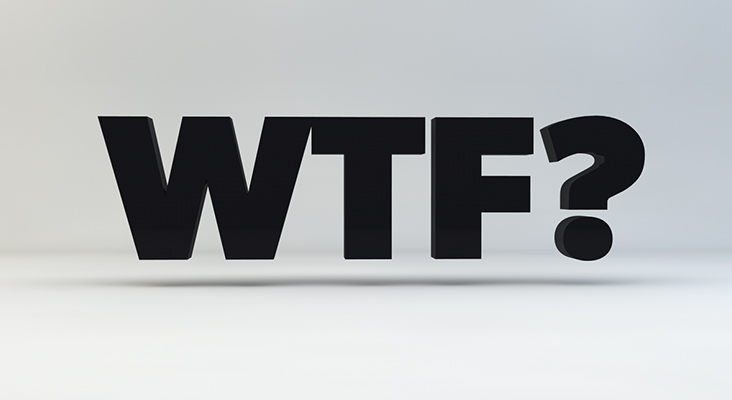Last chance to save on Digiday Publishing Summit passes is February 9

This article is a WTF explainer, in which we break down media and marketing’s most confusing terms. More from the series →
At the Consumer Electronics Showcase in Las Vegas last week, it seemed like all anyone could talk about was the Internet of Things — a brilliant, seamless ecosystem that will someday connect all your household appliances and, even farther into the future, your walls and floors and maybe even the roof of your house. Goldman Sachs estimates that the Internet of Things (awkwardly shortened to “IoT”) has the potential to connect 28 billion “things” by 2020.
But while it all sort of makes sense in the abstract, there are still a number of questions about what IoT really is. Here, then, is our attempt at answering a few of them.
So, WTF is the Internet of Things?
Put simply, it’s when “things” get online, creating a seamless connection between, for example, your car, your refrigerator, your phones and the Web. The term was coined by British technologist Kevin Ashton in 1999 when he was at MIT. Your objects will become more-intelligent, somewhat-sentient beings that will be able to, with the help of the Internet, do your work for you. Running out of milk? Your fridge will know and automatically send a note to FreshDirect to add milk to your next grocery delivery. Having a bad night, tossing and turning? Your smartwatch will know — LG is one of the brands that promises this vision — and will instruct the audio system in your home to play something soothing.
Why is it in the news now?
The concept has been around since the dawn of the new millennium, but cost is one of the biggest things driving the momentum. Sensors and chips are cheaper than ever, as is processing and bandwidth. And Wi-Fi is everywhere, as are smartphones.
It sounds scary.
It does, but it’s what has been promised by all those sci-fi movies. In short, you asked for it. As Steve Serra, vp of product and business innovation at Huge, puts it, it’s a “slightly different riff on the old sci-fi idea of teleportation. Rather than being able to be anywhere at any time, the Internet of Things will enable us to extend our being via far-flung devices and products.”
Great, but do we really need a tweeting refrigerator?
Not if you’re OK with not knowing when you’re running out of Gatorade.
What does this mean for brands?
One word: data. Lots of it. If your devices know, for example, that you haven’t been sleeping well, it’s a good time for a sleep-aid medicine to hit you with an ad. Maybe it appears on your smartwatch. A washing machine might order detergent when you’re getting low (all the better for Whirlpool if it has an exclusive deal with one detergent manufacturer in particular). Starbucks is already halfway there with talking coffee makers that track customer preferences and let staff know how the coffee is.
And for ad agencies?
It means more work. “Agencies will need to put greater time and emphasis on teams like UX, UI and IA as consumers begin to connect to items that had never previously been connected,” said Iris planning director Paolo Pazzia. “Agencies with technology-forward clients will see otherwise non-tech clients come forward looking for integration, like how Samsung Consumer Electronics partnered with a brand like Hasbro to help revitalize Pictionary, bringing it to the Tizen OS and onto Televisions and Mobile phones in homes across new Samsung TVs.”
So what’s the hold up?
The problem is that most of the companies at the forefront of IoT are obsessed with themselves. Samsung, for example, has a range of appliances, phones and wearables — but those devices only talk to other Samsung toys. For actual money to flow when it comes to advertising, one of two things needs to happen: Either one sole company gets a large enough market share that it monopolizes the entire Internet of Things. Or, alternatively, companies become more ecosystem-agnostic and truly let devices talk to each other, across brands.
Are you going to get to the glaring privacy concerns?
Well, yeah. At a time where data breaches happen almost every week, it makes sense that hacking is the biggest concern for the IoT. Speaking at CES, FTC chairwoman Edith Ramirez said that any device connected to the Internet runs the risk of getting hijacked. If those devices contain your household or medical data, that’s bad. The concern is so palpable that there are already products purporting to address it: Bitdefender Box, also introduced at CES, plugs directly into your router and scans for viruses, constantly, protecting the entire network, not just a specific device.
What kind of data will my microwave be gathering, exactly?
The Informational Technology and Innovation Foundation’s Center for Data Innovation has published 10 guidelines that are supposed to help in crafting policies for how data will be collected by IoT devices. At the same time, the ITIF also said that the timelines on approval need to be short, so as not to hinder innovation.
Meaning?
Two words: Tweeting toilets.
More in Marketing

GLP-1 draws pharma advertisers to double down on the Super Bowl
Could this be the last year Novo Nordisk, Boehringer Ingelheim, Hims & Hers, Novartis, Ro, and Lilly all run spots during the Big Game?

How food and beverage giants like Ritz and Diageo are showing up for the Super Bowl this year
Food and beverage executives say a Super Bowl campaign sets the tone for the year.

Programmatic is drawing more brands to this year’s Winter Olympics
Widening programmatic access to streaming coverage of the Milan-Cortina Games is enabling smaller advertisers to get their feet in the door.





